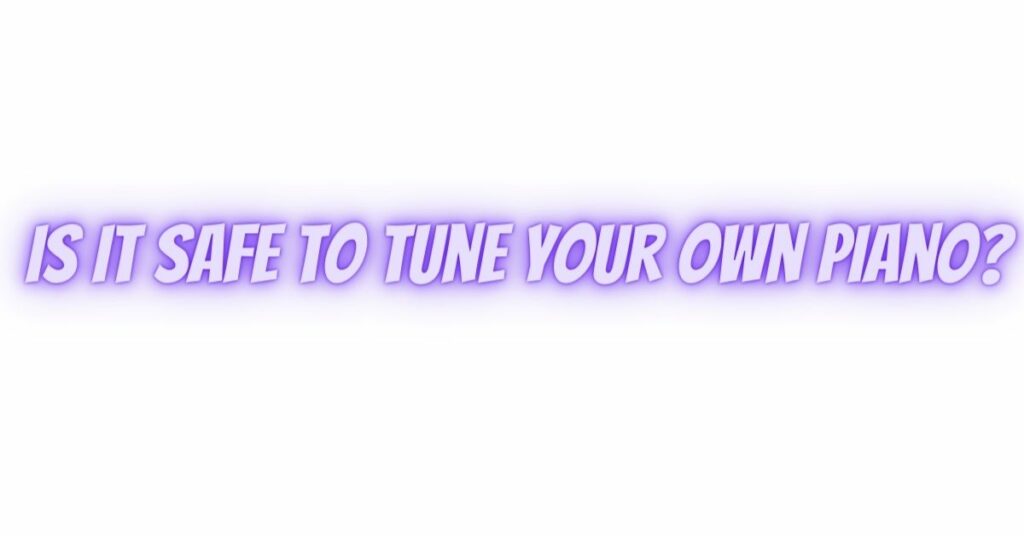Piano tuning is a delicate and precise process that involves adjusting the tension of each piano string to ensure the instrument produces accurate and harmonious pitches. While it may be tempting to try tuning your piano on your own to save money or explore a new skill, it’s essential to understand the complexities of piano tuning and the potential risks involved. In this article, we will discuss whether it is safe to tune your own piano and the factors to consider before attempting DIY piano tuning.
The Complexity of Piano Tuning
Piano tuning is a highly specialized skill that requires years of training and experience to master. Here are some reasons why piano tuning is a complex and challenging task:
- Precision: Piano strings are under extreme tension, and even a minor adjustment can significantly impact the pitch. Tuning requires precise control and accuracy.
- Ear Training: Tuners rely on their well-trained ears to detect minute differences in pitch and adjust accordingly. Developing this level of sensitivity takes time and practice.
- Tools and Equipment: Professional piano tuners use specialized tools like tuning hammers and electronic tuning devices to achieve accurate results. Proper tools are essential for safe and effective tuning.
- Understanding of Piano Mechanics: A thorough understanding of a piano’s internal mechanics, including the soundboard, bridges, and pinblock, is necessary to diagnose and address tuning issues properly.
- Potential for Damage: Incorrect tuning can cause strings to break, damage the piano’s internal components, or lead to a less-than-ideal sound quality.
Risks of DIY Piano Tuning
- Damage to the Piano: Novices attempting piano tuning may inadvertently damage the piano’s structure, including the soundboard, pinblock, or tuning pins. Such damage can be expensive to repair and may even render the piano unplayable.
- Inaccurate Tuning: Achieving accurate and stable tuning requires expertise. DIY tuners often struggle to maintain consistent pitch across all octaves, leading to an uneven and unsatisfactory sound.
- String Breakage: Over-tightening or incorrect tuning techniques can cause piano strings to break, resulting in additional expenses for replacement and repair.
- Loss of Warranty: Attempting to tune your piano without professional training and certification may void any existing warranties or service agreements.
When DIY Piano Tuning May Be Considered
While professional piano tuning is strongly recommended, there are a few scenarios where DIY piano tuning may be considered:
- Education and Practice: If you are interested in piano tuning as a hobby and are willing to invest in proper training and equipment, you can use an old or less valuable piano for practice. However, never attempt to tune a valuable or irreplaceable instrument without professional guidance.
- Emergency Fixes: In case of minor detuning due to temperature or humidity changes, a basic tuning adjustment may be attempted using a tuning app or device as a temporary fix until a professional tuner can be scheduled.
Conclusion
In general, piano tuning is a complex and nuanced process that should be left to trained and experienced professionals. The risks of DIY piano tuning, including potential damage to the instrument and diminished sound quality, far outweigh the potential cost savings. If you believe your piano requires tuning or maintenance, it is strongly recommended to seek the services of a qualified and certified piano tuner who can ensure the safety, accuracy, and longevity of your instrument while preserving its tonal quality and playability.


